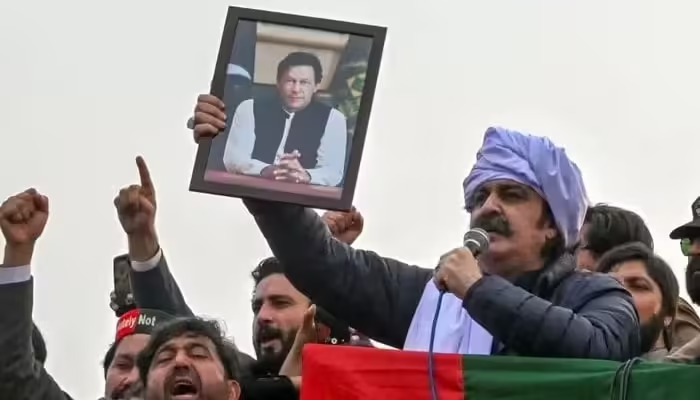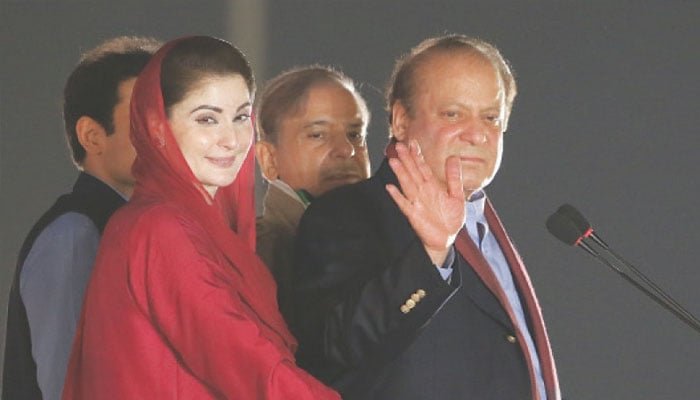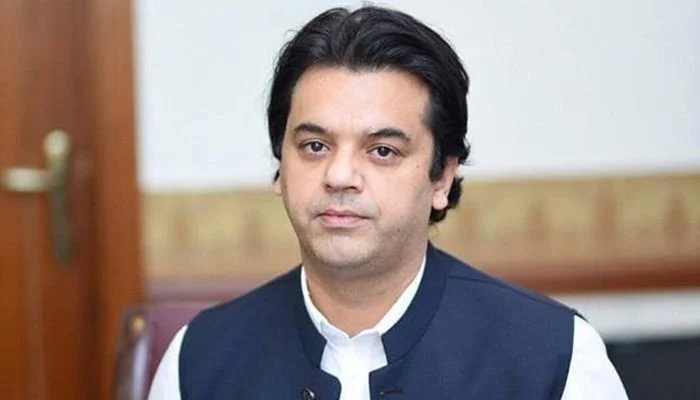In a significant legal development, a case has been registered against the founder of Pakistan Tehreek-e-Insaf (PTI), Imran Khan, along with key party leaders and more than 500 unidentified individuals. The charges, which include attempted murder and terrorism, were filed following violent clashes between PTI protesters and law enforcement authorities in Islamabad.
According to the government, the case was lodged at the Noon Police Station and names prominent PTI figures, including Khyber Pakhtunkhwa Chief Minister Ali Amin Gandapur, Senator Azam Swati, Umar Ayub, Barrister Saif, PTI Islamabad President Aamir Mughal, and Hafeezur Rehman Tipu. The accused face serious charges, including attempted murder, violations of the Anti-Terrorism Act, arson, attacks on state officials, and violent assaults on police personnel.
Background of the Incident
The charges stem from a PTI-led protest that escalated into violence. The protesters, numbering in the hundreds, were demonstrating against the government when confrontations with the police turned brutal. The violence reportedly unfolded as the PTI leadership, including Imran Khan and Ali Amin Gandapur, addressed the crowd, which later attacked law enforcement officers.
The protest, initially planned as a peaceful demonstration, quickly spiraled out of control. According to the police, the protesters used sticks, stones, and iron rods to assault the officers. Tear gas was fired in response to disperse the crowd, but the situation deteriorated as demonstrators retaliated with further violence.
Police Officer’s Tragic Death
One of the most tragic outcomes of the clashes was the death of police officer Abdul Hameed. According to the case details, Abdul Hameed was subjected to severe torture by the protesters. He was kidnapped by a group of protesters, beaten, and severely injured. The officer was rushed to the hospital and remained under medical treatment for a day but tragically succumbed to his injuries.
The violent attack on Abdul Hameed has sparked outrage, particularly among law enforcement circles, and is now a central part of the legal case against PTI leadership and protesters. The incident highlights the increasing risks faced by police officers during political demonstrations and the growing threat of violence in Pakistan’s political landscape.
Details of the Case
The charges outlined in the case are severe and involve multiple counts of violent crimes. In addition to Imran Khan and Ali Amin Gandapur, other prominent PTI leaders like Azam Swati and Umar Ayub have also been named in the case. The case implicates more than 500 unidentified individuals who were reportedly involved in the violent protests.
According to the lawsuit, the protesters are accused of torturing several police officers, including Abdul Hameed. The case alleges that the protestors ripped the uniforms of police personnel, fired weapons, threw stones, and assaulted the police with iron rods. Additionally, the protesters are accused of burning government and public property during the demonstration.
The legal complaint also highlights the slogans raised by the protesters against the government and the state, adding a political dimension to the charges. The inclusion of the Anti-Terrorism Act in the case reflects the severity with which the government views the events.
Government’s Response
The government has strongly condemned the violence that erupted during the PTI protest. Officials have stated that such acts of violence will not be tolerated, and those responsible will be held accountable. The case, which includes charges of attempted murder and terrorism, is seen as a strong message to political parties and their supporters that the state will take strict action against those who incite violence and attack law enforcement personnel.
The involvement of senior PTI leaders in the case has sparked political controversy, with PTI supporters criticizing the government’s handling of the protests. However, the government maintains that the case is based on the serious nature of the crimes committed during the protest, particularly the death of the police officer and the injuries sustained by several other officers.
Political Implications
The filing of attempted murder and terrorism charges against Imran Khan and other senior PTI leaders is expected to have significant political ramifications. Imran Khan, who has been a vocal critic of the current government, now faces serious legal challenges that could impact his political career. The charges also raise questions about the future of PTI as a political party, particularly as its leadership faces growing legal scrutiny.
On the other hand, the government’s decision to pursue such charges against PTI leaders may lead to further political polarization. With tensions already high between the ruling government and the opposition, this latest development is likely to exacerbate the political crisis in the country.
The case of attempted murder and terrorism filed against Imran Khan, Ali Amin Gandapur, and other PTI leaders represents a critical juncture in Pakistan’s ongoing political unrest. The violent clashes during the PTI protest, which led to the death of a police officer and widespread destruction, have triggered serious legal actions. As the case moves forward, it is expected to dominate headlines and further intensify the political atmosphere in Pakistan. Whether the charges lead to convictions or become part of a broader political battle remains to be seen, but one thing is certain: the events of that fateful protest will leave a lasting impact on the country’s political landscape.



